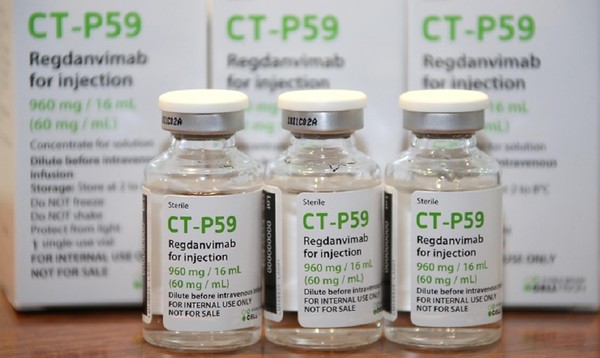Korean researchers have published the first cohort study result for Celltrion's Regkirona, a Covid-19 treatment, an antibody treatment that selects and mass-produces neutralizing antibodies from recovered patients through cell culture.

The Ministry of Food and Drug Safety approved the drug last September after the company confirmed that Regkirona reduced the rate of severe morbidity by 72 percent and shortened the clinical recovery period by 4.12 days compared to the placebo group in phase 3 clinical participated by 434 patients.
However, Regkirona was embroiled in controversy about its efficacy in phase 2 clinical trials.
The research team, led by Park Soo-shin, a researcher at Pusan National University College of Pharmacy, started a cohort study to see if there was any efficacy. The researchers followed the medical records of Covid-19 patients hospitalized between Dec. 1, 2020, and April 16, 2021, until death or discharge.
The study ended on May 14, 2021, and among high-risk mild Covid-19 patients, the team observed prognosis by assigning dividing patients into those that received Regkirona and those that did not.
Of the 1,617 patients hospitalized during the study period, 970 patients (60 percent) were eligible for Regkirona, of whom 377 (38.9 percent) received Regkirona, and 593 did not receive the treatment. As a result of the analysis, the number of multi-cause death or worsening of disease in the treatment group was only 19 (5 percent), whereas the number in the non-medication group was 81 (21.5 percent).
The team confirmed that the length of hospitalization was also shorter than that of the treated group (11.9±3.3 days) compared to the non-treated group (13.7±5.4 days).
In terms of safety, some hematologic side effects were more frequent in the Regkirona-treated group but were not severe, and other side effects were similar.
"This study is meaningful in that it has confirmed significant clinical effects as the only single agent for neutralizing Covid-19 in Korea," the research team said. "Although sufficient evidence for routine clinical application was lacking, we hope that this actual evidence will serve as a basis for effective treatment of Covid-19."
As research on the therapeutic effect of Regkirona on variants is currently underway, there is a need for further research on Regkirona's efficacy in treating variants in actual clinical practice, the team added.
Meanwhile, as the data proved the mechanism of action using neutralizing antibodies in the blood of cured people, such as shortening the hospital stay and reducing the aggravation of the disease, industry experts expect that the research data will help Celltrion develop its inhaled cocktail treatment to treat variants.
The company has been developing the inhaled Covid-19 antibody treatment after the government decided to discontinue using Regkirona due to decreased efficacy against the Omicron variant on Feb. 24.
According to an industry insider, despite the study's limitation before the Delta and Omicron outbreak, it still has significance by demonstrating the mechanism of action of an antibody therapy using the blood of a cured person.
"This is important as the company can also select neutralizing antibodies from recovered Omicron patients and rapidly mass-produces them through gene cloning due to the characteristics of antibody therapeutics," the insider said.
Celltrion is currently developing inhaled cocktail antibody treatment that adds CT-P63, a candidate for treating Covid-19, which the company confirmed to be safe in a clinical trial early this year.
Celltrion completed the submission of phase 3 clinical trial plans for the inhaled cocktail antibody therapy in three countries --Bosnia, Serbia, and North Macedonia – and plans to expand the number of countries to recruit 2,200 mild and moderate Covid-19 patients to prove the efficacy and safety of the inhaled therapy.
Celltrion plans to expand clinical trials in countries where patient recruitment and clinical progress proceed smoothly, considering the clinical trial environment, such as the spread of virus mutations.
The company expects the inhaled antibody therapy to become an optimized platform for responding to variants by co-administering CT-P63, which has neutralizing ability against such variants.

